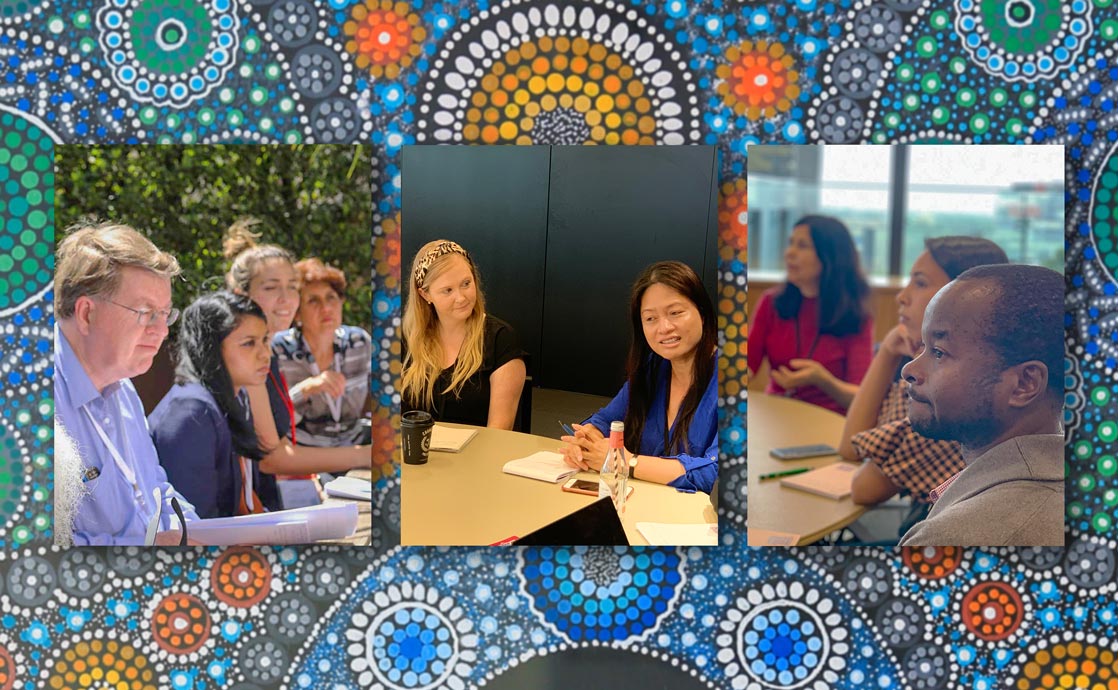The Bahá’í teachings emphasize the profound importance of unity, inclusivity, and the shared identity of humanity. In the context of Australia, where multiculturalism is not merely an aspect of social fabric but a pivotal thread that weaves together diverse narratives, the concept of creating an inclusive narrative takes on a significant role. This article elucidates the Bahá’í perspectives on fostering inclusiveness, promoting mutual respect, and nurturing a shared identity within the Australian milieu.
At the heart of Bahá’í philosophy is the idea that humanity constitutes a single race, akin to the diverse colors of a beautiful tapestry. This metaphor underscores a fundamental belief: individual differences, whether cultural, ethnic, or religious, enrich societal interactions. In Australia, where Indigenous cultures coexist with immigrant heritages, the necessity for an inclusive narrative resonantly mirrors Bahá’í principles.
To explore the significance of this narrative, we must first examine the components that contribute to inclusivity. Central to fostering inclusivity is the recognition and celebration of diversity. Australia boasts a mosaic of cultures, languages, and histories. Acknowledging and honoring this diversity is paramount for effective community building. Stories that emanate from various cultural backgrounds encapsulate unique experiences that can enhance social cohesion and cultivate a deeper understanding amongst Australians.
Utilizing inclusive storytelling is a potent mechanism through which the Bahá’í community and other organizations can foster a shared identity. Storytelling transcends intellectual boundaries and resonates on an emotional level. By intertwining narratives from different ethnic and cultural backgrounds, a richer, multi-dimensional portrayal of Australian life emerges. The Bahá’í teachings encourage individuals to share their personal stories, weaving their experiences into the larger narrative fabric of the nation. This fostering of empathy cultivates a sense of belonging and mutual respect.
Furthermore, educational initiatives play a critical role in promoting inclusivity. Bahá’í teachings advocate for the universal education of all people, regardless of socioeconomic status or background. By integrating lessons that emphasize the value of diversity and the significance of empathy into the educational curriculum, future generations can be instilled with the tools necessary for creating harmonious societies. Programs that encourage cooperative learning among students from diverse backgrounds can dismantle prejudices and build bridges of understanding. This pedagogical approach not only benefits students; it reshapes the broader societal narrative that Australia embraces.
The Bahá’í faith places substantial emphasis on the importance of consultation. This process encourages dialogue where all voices are heard and valued. In a society marked by varying perspectives, the practice of consultation can serve as a powerful tool for inclusivity. It promotes collective decision-making and fosters an environment where individuals are empowered to express their viewpoints while appreciating the richness of others’ contributions. Thus, in community-building efforts across Australia, the adherence to consultative approaches can foster unity amid diversity.
As we navigate the complexities of an increasingly globalized world, the Bahá’í perspective on inclusivity becomes even more salient. Global interconnectedness poses both challenges and opportunities. It pushes communities to confront biases and systemic inequalities but also provides a platform where diverse voices can resonate. As Australians engage with one another across cultural and ideological spectrums, it is imperative that inclusivity remains a prevailing theme. Multicultural festivals, interfaith dialogues, and community outreach programs can serve as instruments to weave inclusive narratives that celebrate diversity while nurturing a cohesive cultural identity.
Moreover, creating an inclusive narrative is intrinsically linked to the recognition of historical injustices. Australia has a complex history, particularly regarding its Indigenous populations. The Bahá’í teachings advocate for justice and reconciliation as foundational elements of community life. It is essential for Australians to engage in honest dialogues regarding historical and contemporary inequities facing Indigenous communities. By amplifying Indigenous voices and recognizing their historical narratives, Australians can begin to formulate a more accurate and inclusive national identity. This critical process entails not only acknowledging wrongs but also actively working towards reparative actions that honor the shared heritage of the nation.
In addition to communal initiatives, the responsibilities of individual Bahá’ís in fostering an inclusive narrative cannot be overstated. Each individual, through their actions and demeanor, contributes to the larger societal narrative. By embodying characteristics such as kindness, understanding, and humility, individuals can serve as catalysts for broader change. Engaging in local community initiatives, volunteering, and participating in interfaith dialogues are actionable ways in which individuals can contribute to inclusivity. Such efforts, no matter how small, coalesce to create a more compassionate and accepting society.
Finally, the synergy between faith and action inspires a call to transcend passive acceptance of diversity. Instead, it demands active participation in the creation of inclusive narratives. The Bahá’í teachings remind followers of the critical role they play in shaping a society where every individual is recognized, valued, and celebrated. Inclusivity is not merely a passive concept; it is an active endeavor requiring vigilance, empathy, and dedication from every Australian, rooted in the understanding that collective progress is inextricably linked to the welfare of every individual.
In conclusion, the creation of an inclusive narrative in Australia, as articulated through Bahá’í teachings, is essential for cultivating a shared identity amidst diversity. By celebrating differences, fostering educational inclusion, engaging in consultative practices, acknowledging historical injustices, and inspiring active participation, Australians can weave a rich tapestry of narratives that honor the multifaceted essence of their society. Such efforts embody the principles of unity and inclusivity that lie at the core of the Bahá’í faith, serving as an invitation to all Australians to contribute to a harmonious future.
